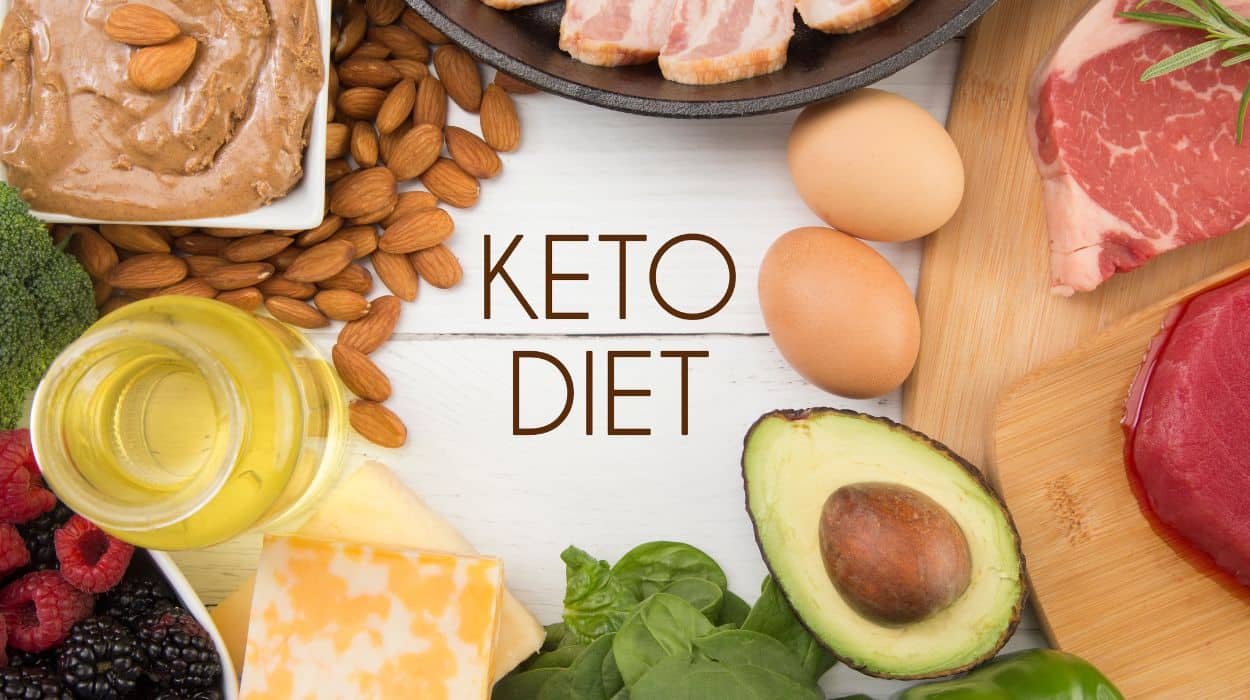The ketogenic diet has developed a lot of interest over time, and its popularity has continued to grow in recent years. Some of this hype is well deserved; several studies show promise in ketogenic brain health, including evidence of benefit for epilepsy, Parkinson’s, and Alzheimer’s. Before heading to the grocery store and buying out the meat department, discussing the keto diet’s advantages and disadvantages is helpful. Let’s get started!
Keto Diet Advantages And Disadvantages
We’ll start by considering the advantages. These can be characterized by:
- Improved satiety (Feeling full after eating, less hungry throughout the day).
- Weight loss.
- Enhanced brain function.
Disadvantages:
- Keto flu.
- Heart disease risk.
- Higher cost of groceries.
- Nutritional deficiencies.
Keto Diet Advantages

Versions of the keto diet vary, so results may vary as well, particularly if utilizing a more extreme restriction approach – it’s important to note that the most researched and recommended version is the standard ketogenic diet when assessing health benefits. This version is defined as 10% of total calories from carbohydrates, 20% from protein, and 70% from fats (both unsaturated and saturated fats).
Boosts Satiety
Satiety is essentially feeling full enough that you eliminate cravings throughout the day. Individuals eating a low-calorie ketogenic diet report feeling full, although the mechanisms that cause increased satiety are not well defined.[1]
It seems this is most likely caused by a focus on foods with increased fat as well as foods that have been associated with fewer cravings compared to a standard diet. Feeling full and having fewer cravings can make reducing your overall caloric intake easier, which can lead to body weight loss.
Lose Weight
Rapid weight loss can be achieved, which is undoubtedly a significant part of its appeal. Initial weight loss of as much as 10 lbs in 2 weeks has been shown. It’s important to note that much of this initial weight loss is probably fluid mass (water weight), and this rate of weight loss is not sustainable over time. Experts generally agree that a healthy rate of weight loss over time is about 1 to 2 lbs per week.
Enhanced Brain Function
Epilepsy (Seizure Disorders)
Variations of the ketogenic diet appear to have been used for the management of epilepsy (seizure disorders) as far back as 500 BC or earlier,[2] and were routinely used in the 1920s before the development of advances in anti-epileptic medications. Keto low-fat diets remain a consideration for epileptic patients under the supervision of a neurologist, particularly those with refractory symptoms (seizures that still occur after trying multiple medications for seizure control).
Alzheimer’s
Alzheimer’s is currently characterized by the development of amyloid plaques, impaired glucose metabolism, and loss of neurons. A ketogenic diet may offset these symptoms by offering ketones as an alternate energy source to glucose and reducing the formation of amyloid plaques.
This has led some researchers to suggest that a ketogenic diet may help prevent Alzheimer’s or improve existing symptoms.[3] It should be noted that, particularly for elderly patients with Alzheimer’s, the ability to use the diet long-term may present some challenges.[4] Further research in this area would be beneficial.
Keto Diet Disadvantages And Side Effects
Keto Flu
Keto flu is a group of symptoms that have been associated with starting the keto diet. The cause of these symptoms is ultimately unknown, and they do not occur for everyone. Symptoms reported include nausea, constipation, headache, fatigue, irritability, and difficulty sleeping. These symptoms are not necessarily unique to starting a keto diet – similar symptoms are reported by patients cutting back or stopping the use of processed foods.
The name can be misleading – this is not a flu. While bothersome, these symptoms would be unlikely to become incapacitating. These symptoms are likely to resolve after a few days – the body adjusts, and energy levels tend to rebalance within a week or so. Make sure to drink plenty of water – stay hydrated!
Cardiovascular Risk Factors
Keto diets have been associated with improved BMI or body mass index, blood pressure, high-density lipoprotein or HDL cholesterol (considered the “good” cholesterol), and triglycerides. Despite this, the low-fat diet may be associated with an increased risk of cardiovascular diseases such as heart attack and stroke.[5] A laboratory marker that predicts this risk well is LDL cholesterol.
A high-fat diet with up to 70% of calories from fats can cause the balance to be tipped toward higher risks of cardiovascular disease even if you are focusing on unsaturated healthy fats – it may be difficult to avoid increasing the amount of saturated fat consumed. The best way to monitor your current status when eating more high-fat foods is to get your blood fats and cholesterol levels measured regularly by your primary care doctor.
Costly And Inaccessible
A heavier focus on whole foods, fresh produce, low-fat dairy products, and lean meats can potentially place a strain on a grocery budget. These products have traditionally been higher priced items than many grains and processed foods.
Over the past few years, supply chain disruptions have also caused comparatively larger price increases for these products. The keto diet is not necessarily unique in its higher cost. A common theme (and potential problem to be solved for our society in general) is that “healthy foods are generally more expensive.”[6]
Nutritional Deficiencies
Keto is a restrictive low-carb diet plan that carries a risk of deficiencies, particularly if used for extended periods. The availability of several micronutrients may be affected depending on your specific food choices. Some of the more common deficiencies are seen in sodium, potassium, magnesium, and vitamin C, among others. Continued monitoring with a registered dietitian and physician is important to maintain healthy macro and micronutrient balances over time.
It may also be helpful to consider nutritional supplementation for additional support. While there is no established best multivitamin for the keto diet, there are several products available that may help counteract some of these deficiencies.
The Ketogenic Diet

The keto diet’s method produces ketone bodies for fuel. This is accomplished by limiting carbohydrates as a fuel source which causes your body to shift its focus to an increase in fat metabolism (you burn fat) to produce ketones as an alternative fuel source.
A keto low-carb diet meal plan consists primarily of animal products such as eggs, dairy, meat, nuts, and low-starch vegetables. In a keto diet foods list, the foods limited or avoided to achieve a low carb intake include sugary foods and drinks, whole grains, legumes (beans, lentils, chickpeas), most fruits, and starchy vegetables.
Precautions Before Starting Low-Carbohydrate Diets
Patients with diabetes should only implement a keto diet under the supervision of a healthcare professional. In some instances, limiting carb consumption can be beneficial as you limit some of the more common potential sources of high blood sugar levels. There is already an increased risk of cardiovascular diseases, such as heart attack or stroke associated with diabetes – a ketogenic diet can increase these risks further.[7]
Type 1 diabetics carry a risk of ketoacidosis – ketogenic diets will increase this risk as well. Implementing a low-carbohydrate diet can be beneficial for patients with diabetes, but achieving an appropriate balance of macronutrients is the key. This can be accomplished with the help of a managing physician and a registered dietitian.
Patients who are currently pregnant or breastfeeding have additional nutritional needs. The keto diet may alter the intake of nutrients crucial for development, such as folate and other B vitamins. Dehydration and an associated reduction in milk production may also occur. A restrictive diet may harm the health of you and your baby and is not recommended.
Studies have shown that children who have used the keto diet for epilepsy have displayed a higher rate of bone density loss.[8] This raises the question of whether there may be longer-term effects not only for these children but also for adults using the diet. As of this time, the effects of the keto diet on bone density in adults, risk of developing osteoporosis, and bone fractures are unknown.[9]
It may be beneficial to consider bone mineral density screening before starting the diet, particularly if you smoke, drink alcohol regularly, are over 50 have a history of fracture, or if a parent has suffered a hip fracture.
Conclusion
There are both advantages and disadvantages to a keto diet. It has several potential benefits when implemented safely. These include weight loss and possible improved outcomes for patients managing epilepsy or neurodegenerative disorders such as Alzheimer’s.
These benefits must be appropriately weighed against potential nutrient imbalances and increased risk of cardiovascular disease (heart attack and stroke). The pros and cons of a keto diet should be considered on an individual basis.
Your healthcare provider and registered dietitian can help you decide if the keto diet is right for you. They can also help you maintain adequate monitoring to ensure a healthy balance is sustained over time!
Frequently Asked Questions
There have been some studies showing increased insulin resistance and the potential for increased risk of developing prediabetes or diabetes. For patients who are already diabetic, overall blood sugar control seems to be improved.
Yes, you can lose weight while using the keto diet. It is important to talk with your doctor about the diet before starting it, however. Keto diets are unsafe for some individuals managing diabetes, or who have a high risk of cardiovascular disease. The restrictive nature of the diet can also lead to some nutrient deficiencies if not approached with careful planning.
 Expert's opinion
Expert's opinion
